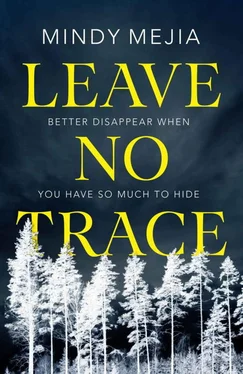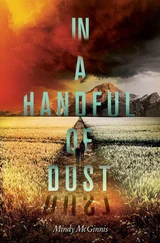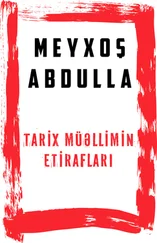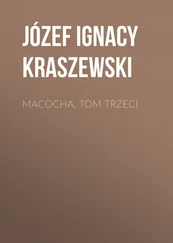When security cleared me through on Monday morning for my first session with Lucas in the new ward, there was a scuffle going on in front of the TV and I helped the orderlies break up what turned out to be a disagreement over a channel change. Lucas wasn’t anywhere in the living room or adjoining dining area. I finally found him in a classroom next to the nurse’s station, the room where different therapists taught social skills, life skills, art, even cooking. Lucas sat on the floor behind the rows of benches, visible to the wall of windows connecting it to the nurse’s station but hidden from the group of men still arguing over the TV. One of them began shouting again, and I walked into the room in time to see Lucas burying his head in his arms and rocking on the floor.
‘There you are.’
His head shot up at my voice and relief swamped his face, startling me.
I closed the door to the classroom, blocking some of the noise and set up our session on one of the benches. He sat closer to me than I expected and didn’t even seem to consider whether he could use the felt tip pen I produced as a weapon. I gave him some loose-leaf paper and asked him to start a journal.
He frowned. ‘Is that going to get me out of here?’
I uncapped the pen and put it in his hand. ‘It’s another step. Journaling can help synthesize experience.’ I explained how the act of writing engaged both hemispheres of the brain equally, making it a uniquely suited tool for processing and learning. Then he wanted to know about brain hemispheres and we spent twenty minutes talking about cognitive function, the nervous system, and right- vs. left-brained people. When the session was over, he touched the chipped silver polish on my fingernails and asked when I would be back, then watched from the safety of his classroom cave until I left the ward.
He wrote halting paragraphs over the next few days – poorly spelled and sometimes hardly legible – commenting on how awful the food tasted, how loud his roommates snored, how many times he could hear an alarm shrieking through the echoing old walls of the building, nothing that even hinted at his father or his life before Congdon. From what I could tell, he stayed as far away from the other patients as possible. He didn’t socialize, he didn’t speak when spoken to. He obeyed the staff directions on the second or third time given and sat through group classes staring out the window. One of his OCD roommates started monitoring Lucas and gave me a full report every time I appeared. Lucas gave his breakfast to Big George today he went to the bathroom twice and stayed in the second time for sixteen minutes he’s over there behind the second couch. And then, when Lucas saw me, he would immediately rise and follow me to the classroom. He began starting our conversations, asking questions or bringing up points that he seemed to save up over the course of the day, although if Dr Mehta stopped by or anyone else entered the room he would fall into characteristic sullen silence.
I played the part of his breezy friend, a warm and casual acquaintance happy to chitchat while correcting his spelling and grammatical errors. I brought him brochures for GED programs and colleges, which he didn’t even glance at, a book of Sudoku puzzles, which he devoured with a rabid obsession, and Oreo cookies, which he spit out into a napkin after chewing one bite, making me question his entire capacity for judgment. The less I prepped for each session, the more he gravitated toward me. I didn’t have time to wonder about his change of heart, though; I was too busy researching his father.
The Internet, for all its wastelands and perversions, was sometimes a beautiful thing. I searched for Josiah in a people finder database and got two hits, one of which was a ninety-two-year-old man living in New Hampshire. I ordered a full background check on the other one, Josiah Blackthorn, age forty-six, aka J Blackthorn, aka Joe Blackthorn, with a birth certificate registered in Detroit and previous addresses scattered all over the upper Midwest. There were no marriage certificates. He hadn’t owned much property – a few trucks registered in his name every ten years or so, no houses or anything that would’ve fixed him in one place for any length of time. He’d received an associate degree in automotive technology in Illinois. Known relatives: two dead foster parents and one child, listed missing. I might have spent fifty bucks only to find out Josiah Blackthorn had been a drifter, except for the arrest records.
1992. DWI.
1995. Disorderly conduct.
1996. Public Intoxication. Disturbing the peace.
1996. Open container. Attempted assault.
And then nothing until a week before his disappearance when he’d been arrested for obstruction of justice in Ely, Minnesota, the same town where his son was taken into custody a decade later. Ely, the town I’d avoided for all of my adult life. There was no conviction or even a court record following that arrest, and no further information given. I stared at the bland paragraph, circled it, tried to google it and got no results. All the other arrests added up to a violent drunk, someone with a pattern of aggression who’d abruptly gone straight and kept his record clean. But obstruction of justice, after so many years of living quietly? Justice for what, or whom?
After Lucas’s emergence none of the news stories mentioned that arrest, but the media had found a few other tidbits on Josiah. A couple of old coworkers gave interviews describing him as a solitary guy who packed his son up to go hiking every weekend and camping for weeks at a time. One of Lucas’s teachers remembered the two as being startlingly similar. Inquisitive, you know. Both asking follow-up questions, always wanting to know the why’s and reasons for things. And of course they looked… they looked a lot alike. The fluster, well camouflaged, but still there a dozen years later and it wasn’t hard to see why. I printed out the picture of Josiah and Lucas on the dock together and taped it to the refrigerator, staring at it every time I felt hungry. If Lucas had been a beautiful child, Josiah was the rugged, brooding, startlingly handsome father. I didn’t blush like the teacher, though; I looked closer.
Next to the Blackthorns’ picture I’d taped another one, a shot of the Lykovs taken by the geologists who’d discovered them. There was nothing pretty about the Lykov family, not on an aesthetic scale, but something in their expressions made me pause as I stood in front of the refrigerator eating lo mein out of the carton. Joy emanated from their faces, a basic and consuming happiness. One of the rangers who visited Agafia in her later years told a documentary crew that the taiga purified people. Bad people couldn’t survive in those subarctic forests; the deadly ravines and icy bogs would swallow them whole. Taiga, he said, cleanses your soul.
The Boundary Waters had the same power. I’d heard it in my mother’s breath as she stared up at glacier-scarred cliffs, I’d seen it as we passed other campers portaging their canoes and gear, their entire lives distilled into sweat-stained backpacks with no room for abstractions like justice or its obstruction. They possessed a peace, I realized as the cold noodles slithered down my throat, that Josiah Blackthorn’s face was screaming for.
There were no outstanding warrants, Dr Mehta had said, but that final arrest stuck in my head. What was it that Josiah had needed to cleanse from his soul?
The woods are lovely, dark and deep,
But I have promises to keep,
and miles to go before I sleep.
– Robert Frost
Josiah
For as long as he could remember, Josiah Blackthorn hated roofs. When he was a child, ice dams had formed on the eaves of his foster parents’ house and melted through the ceiling, dripping into the cupboards so all the food had to be stored in cardboard boxes while his foster dad spent the rest of the winter in a pissing match with the claims adjustor. They were ugly things, ceilings. His social worker’s office was covered with pockmarked, foam tiles, the grocery store lived under dusty metal crossbeams, and he’d spent countless hours staring at the bug carcasses littering the fluorescent light fixtures at his school. There was always one shadow still moving, hurling itself against the plastic molding in frenetic arcs, but in all the time Josiah watched them he never saw a single bug escape.
Читать дальше












